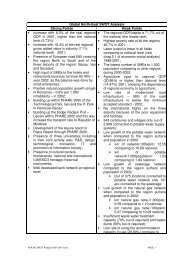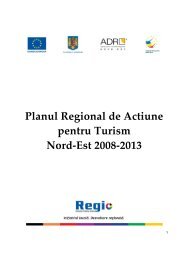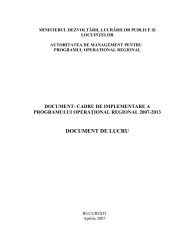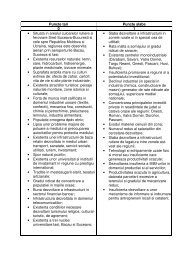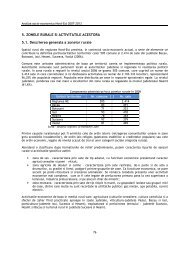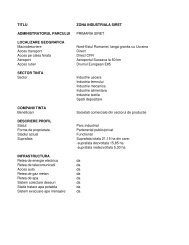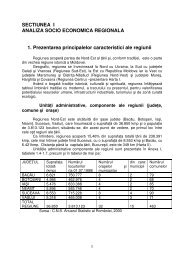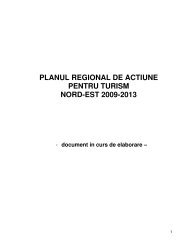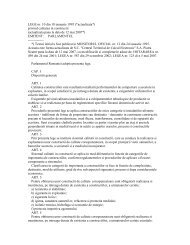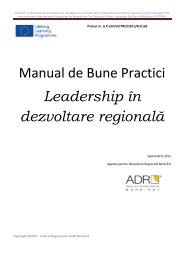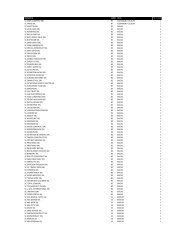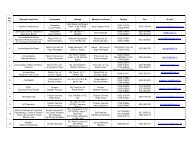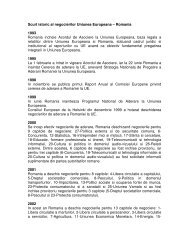EURADA News no. 288
EURADA News no. 288
EURADA News no. 288
You also want an ePaper? Increase the reach of your titles
YUMPU automatically turns print PDFs into web optimized ePapers that Google loves.
ANNEX 1 – p. 9<br />
energy efficient, low carbon tech<strong>no</strong>logies, products and services,<br />
several options have already been identified: market based<br />
instruments, use of minimum performance standards coupled with<br />
advanced performance benchmarks and labels, facilitation of the<br />
emergence of key markets for advanced performing products,<br />
promotion of sectoral agreements, risk sharing funding facility for<br />
in<strong>no</strong>vation, enhanced use of CIP and FP7, use of IPR.<br />
The Communication is geared mainly to national and Community<br />
authorities and enterprises, depending on the actions foreseen<br />
(for instance, public procurement, IPR, minimum performance<br />
requirements and advance performance benchmarks , in<strong>no</strong>vation<br />
and export framework conditions to be dealt by public authorities<br />
whereas enterprises would need to act in the deployment of<br />
tech<strong>no</strong>logies). In terms of impacts, it will be necessary to analyse<br />
the eco<strong>no</strong>mic and environmental effects of the Communication<br />
and its Action Programme. In the case of putting forward an<br />
amending Directive for the EUP Directive (scope, dynamism,<br />
incentives), a full impact assessment will be carried out.<br />
Sustainable<br />
Consumption and<br />
Production (SCP) Action<br />
Plan<br />
Expected date of adoption<br />
of the initiative: February<br />
2008<br />
Context and problem definition:<br />
The decision to develop an SCP-Action Plan was taken by the<br />
Commission in its Proposal for a reviewed Sustainable<br />
Development Strategy (in Dec 2005. Furthermore, in June 2006,<br />
the Council adopted the renewed Sustainable Development<br />
Strategy and identified sustainable consumption and production as<br />
one of the seven key challenges, inviting the Commission to draw<br />
up an Action Plan on sustainable consumption and production.<br />
Finally, the Environmental Council in its conclusions on the<br />
Thematic Strategy on the Sustainable Use of Natural Resources in<br />
October 2006 drew particular attention to the forthcoming SCP-<br />
Action Plan. The forthcoming SCP-Action Plan would help to<br />
identify and overcome barriers for SCP and to ensure better<br />
coherence between the different related policy areas, and to raise<br />
awareness among citizens and change unsustainable consumption<br />
habits. This Action Plan will be presented as a package including<br />
also the revisions of the Eco-label and EMAS Regulations, and a<br />
communication on Green Public Procurement. The SCP Action Plan<br />
builds further on existing SCP-related policies such as the Integrated Product Policy<br />
(IPP) Communication and the Thematic Strategies on Sustainable Use of natural<br />
Resource and Waste Prevention and Recycling.<br />
European and global consumption and production patterns exceed<br />
the carrying capacity of ecosystems, causing environmental<br />
degradation. Actions have to be taken at all levels, including the<br />
European level, according to their specific competencies.<br />
As a result of intra-Community and global trade, the<br />
environmental impacts related to consumption and production are<br />
likely to affect more than one country. Coordinated actions on SCP<br />
are thus needed at EU level in addition to initiatives at the<br />
international, national and local levels. This coordination will<br />
ensure policy coherence and synergies, and allow ensuring single<br />
market issues and simplification.



